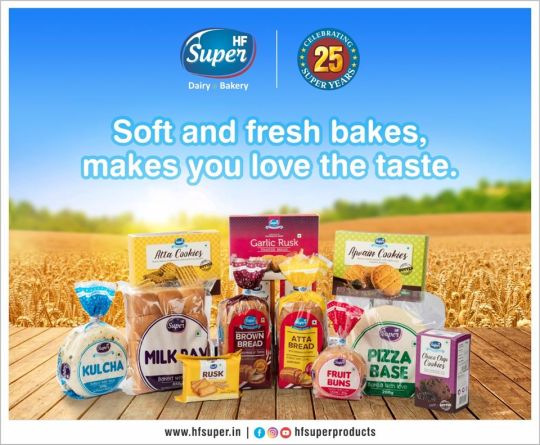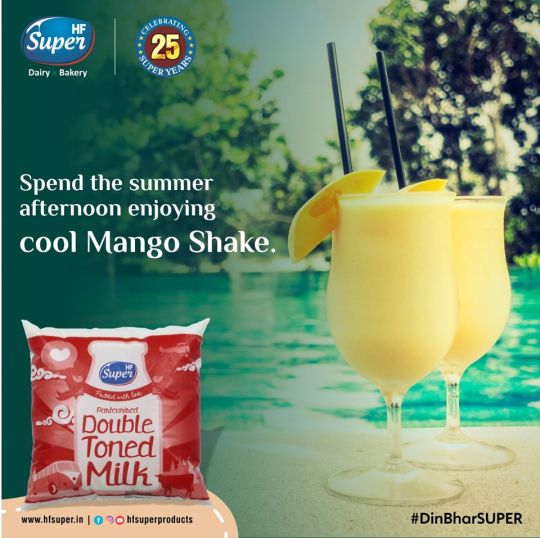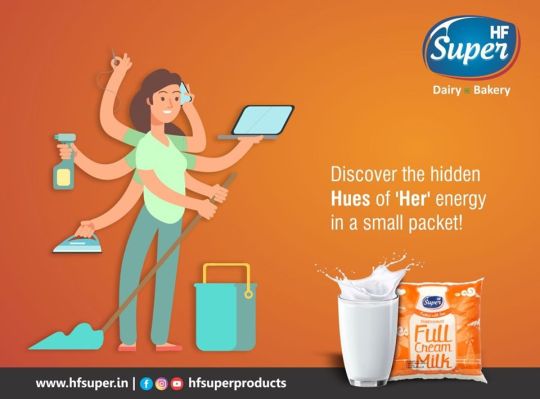#Bakery products suppliers in Punjab
Text
Automatic Labeling Machine for Food Containers

Shiv Shakti Machtech is a leading Manufacturer, Exporter, and Supplier of Automatic Labeling Machine for Food Containers in Ahmedabad, Gujarat, India.
We offer an advanced solution, our Automatic Labeling Machine for Food Containers, tailored to efficiently apply labels with precision and speed.
This machine, equipped with cutting-edge technology, seamlessly integrates into food packaging lines, ensuring accurate label placement.
An Labeling Machine for Food Containers is designed to label various types of food packaging efficiently and accurately.
Key Features:
High-Speed Labeling: Labels food containers quickly to meet high production demands.
Precision Label Placement: Ensures accurate label alignment, reducing waste.
Versatile Label Compatibility: Accommodates various label types for diverse packaging needs.
Adjustable Labeling Parameters: Customizable settings for label size, position, and pressure.
User-Friendly Interface: Intuitive touchscreen interface for easy operation and monitoring.
Automatic Container Feeding: Integrates with conveyor systems for automated container feeding.
Quick Changeover: Enables swift transitions between label types and container sizes.
Robust Construction: Durable materials withstand continuous operation in food processing environments.
Compliance with Food Safety Standards: Meets regulatory requirements for hygienic food labeling.
Applications:
Food Container, Food Package, Plastic Container, Pastic Punnet, Transparent Punnet, Fruits Punnet, Storage Container, Lunchbox, Compass Box, Packed Food Container, Bag, Pouch, Filled Pouch, Big Bag, Paperbag, Food Carton, Food Box, Bakery Box, Bakery Carton.
Geographical Coverage:
Shiv Shakti Machtech serves Automatic Labeling Machine for Food Containers in Ahmedabad, Gujarat, India, including Andhra Pradesh, Arunachal Pradesh, Assam, Bihar, Chandigarh, Chhattisgarh, Dadra and Nagar Haveli and Daman and Diu, Delhi, Goa, Gujarat, Haryana, Himachal Pradesh, Jammu and Kashmir, Jharkhand, Karnataka, Kerala, Ladakh, Madhya Pradesh, Maharashtra, Manipur, Meghalaya, Nagaland, Odisha, Puducherry, Punjab, Rajasthan, Sikkim, Tamil Nadu, Telangana, Tripura, Uttar Pradesh, Uttarakhand, and West Bengal.
Interested parties can reach out to Shiv Shakti Machtech for further details.
Read the full article
#Ahmedabad#AndhraPradesh#ArunachalPradesh#Assam#AutomaticLabelingMachineforFoodContainers#AutomaticLabelingMachineforFoodContainersinGujarat#AutomaticLabelingMachineforFoodContainersinIndia#Bihar#Chandigarh#Chhattisgarh#DadraandNagarHaveliandDamanandDiu#Delhi#Exporter#ExporterofAutomaticLabelingMachineforFoodContainers#Goa#Gujarat#Haryana#HimachalPradesh#India#JammuandKashmir#Jharkhand#Karnataka#Kerala#Ladakh#MadhyaPradesh#Maharashtra#Manipur#ManufacturerofAutomaticLabelingMachineforFoodContainersinAhmedabad#ManufacturerofAutomaticLabelingMachineforFoodContainersinIndia#Meghalaya
0 notes
Text
Refrigerated Eeco Supplier in Punjab

Refrigerated Eeco Supplier in Punjab:
APPS Cold Solution LLP:
APPS Cold Solution LLP leading manufacturer of Refrigerated Eeco units, dedicated to delivering reliable and high-quality products.
Committed to utilizing advanced technology and materials to ensure optimum performance and longevity.
Compact and energy-efficient refrigeration unit designed for small-scale commercial and industrial applications.
Offers reliable cooling solutions for preserving perishable goods and maintaining optimal temperatures for various products.
Features:
Compact design for space-saving installation in diverse settings.
Energy-efficient operation to minimize power consumption and operating costs.
Temperature control systems for precise regulation of cooling conditions.
Adequate storage capacity suitable for storing a range of perishable items.
Durable construction to withstand continuous usage and environmental factors.
Optional features may include adjustable shelves, LED lighting, and digital temperature displays.
Benefits:
Ensures the freshness and quality of stored goods, extending their shelf life.
Helps comply with food safety regulations by maintaining proper storage temperatures.
Reduces the risk of food wastage and inventory loss, leading to cost savings.
Enhances customer satisfaction through consistent product quality.
Applications:
Food and Beverage Industry
Pharmaceutical and Healthcare Industry
Floral Industry
Chemical and Laboratory Applications
Biotechnology and Life Sciences
Seafood and Fishery Industry
Confectionery and Bakery Industry
Wine and Beverage Industry
Agricultural Products
Geographical Reach - Supplier in Punjab:
Provides Refrigerated Eeco Supplier in Punjab, including cities like Hoshiarpur, Faridkot, Amritsar, Bathinda, Batala, Rupnagar, Nawanshahr, Sirhind, Khamanon, Adampur, Ludhiana, Patiala, Khanna, Mansa, Malerkotla, Rajpura, Fatehgarh Sahib, Bassi Pathana, Banga Rural, Kapurthala, Firozpur, Jalandhar, Pathankot, Gurdaspur, Doraha, and Phillaur.
For additional information, please feel free to contact us.
Read the full article
#Adampur#Amritsar#BangaRural#BassiPathana#Batala#Bathinda#Doraha#Exporter#Faridkot#FatehgarhSahib#Firozpur#Gurdaspur#Hoshiarpur#Jalandhar#Kapurthala#Khamanon#Khanna#Ludhiana#Malerkotla#Mansa#Manuffacturer#Nawanshahr#Pathankot#Patiala#Phillaur#Punjab#Rajpura#RefrigeratedEeco#RefrigeratedEecoManufacturer#RefrigeratedEecoSupplierinPunjab
0 notes
Link
Try the best brand of cookies in North India - HF Super made with the finest ingredients for great taste. Moreover, it is packed with amazing health benefits.

#Best Dairy and Bakery Products in Punjab#Best Bakery Brand in Punjab#Dairy & Bakery Products for you and your family#Bakery Products Suppliers in Punjab
1 note
·
View note
Photo

Divyank Enterprises of industries is the best manufactures and Top rusk Manufacturer in Punjab suppliers of different types of Rusk as well as many other types of bakery products. For more queries, call us today! +91-92178-03719
1 note
·
View note
Text
Supermarket price wars leave UK food suppliers close to bankruptcy | Business| Economy and finance news from a German perspective | DW
If one of the world’s biggest suppliers of packaged food struggles to win a meaningful price increase from Britain’s largest supermarket chain, what chance has the rest of the food industry?
Two years ago, British-Dutch conglomerate Unilever, which counts numerous brands from Knorr soups to Walls ice-cream in its portfolio, told Tesco it was putting up its prices by 10 percent, partly as a result of the falling British pound following the June 2016 vote to leave the European Union.
Despite a so-called Marmite war, that saw the world’s third largest retailer withdraw new orders of a popular Unilever spread made of yeast extract, and a public backlash against the price increases, the two sides quickly settled their dispute.
Read more: The true cost of Germany’s cheap food
The agreed price hike was never made public; however Unilever’s 2016 financial results showed it had achieved just a 3.6 percent price hike from its UK suppliers that year, leading analysts to question whether it had achieved much of a meaningful increase from Tesco.
The row was a vital reminder for the thousands of small and medium-sized food producers servicing the likes of Sainsburys, Asda, Aldi and Lidl, that they have even less leverage. Those suppliers have complained for years about the bullying tactics used by the big chains to extract the lowest possible price for goods. But now, the future viability of many of these firms is in doubt.
In the third quarter of 2018, some 9,625 UK food suppliers were described as being in financial distress. New figures, released on Thursday by the UK’s leading independent insolvency firm, Begbie Traynor, represent a 60 percent increase over the past two years in the number of food suppliers perilously close to the edge.
Dr. Lisa Jack, an accountancy professor, who has studied the UK food and beverage industry for many years, told DW that “there is rarely any negotiation on price,” acknowledging that the lack of influence has left “a worrying number suppliers on the verge of administration or insolvency.”
Suppliers of fresh and pre-packaged foods to supermarkets are increasingly at risk of bankruptcy
The likelihood of bankruptcies in the food supply chain is a major cause of anxiety as Britain prepares to leave the EU in March 2019, and the prospect of a no-deal Brexit looms large.
Two years ago, Jack interviewed British and Spanish companies that supply up to 50 percent of fresh food to British grocers to establish the extent of the supermarkets’ strong-arm tactics. As well as being squeezed on price, Jack was told about a system of “profit snatching” by the big chains.
Even if a supplier was able to make savings in its production processes, supermarkets would insist the savings are shared with them, rather than reinvested in their own businesses.
Read more: Should there be a ‘meat tax’ to fight climate change?
The University of Portsmouth professor described how supermarkets “ask and in some occasions allegedly coerce” suppliers into making bonus payments for meeting sales targets, or accepting penalties for damages. The tactics leave suppliers operating on “pea-sized margins,” Jack described in her research.
This aggressive approach has helped Britain to maintain the third lowest food prices in the world, behind the US and Singapore, according to Mark Jones from the Leeds-based law firm Gordons, citing data from the World Economic Forum. Cheaper and cheaper groceries have allowed the large chains to amplify their hypermarket models, making bigger profits from adding electronics, apparel and household goods to their retail offer.
Jones agreed that retailers “drive a hard bargain,” and pointed to the rising market share won by German discount chains Aldi and Lidl in the UK over the past decade, which had put “substantial” pressure on an already competitive grocery market.
“Aldi and Lidl, who had around 3 percent of the market in 2008, now have 13.1 percent between them,” according to Jones.
Tesco is fighting against Aldi and Lidl by launching its own discount supermarket, Jack’s, named after founder Jack Cohen
Other sharp practices by supermarket chains include late payments and the last-minute cancellation of fresh produce contracts, which on Thursday brought farmers and producers out in protest outside the European Parliament in Strasbourg to demand better protection.
Delays of payments to suppliers have increased to an average of 45 days, research by the business finance website Funding Options revealed last month, and are often a lot longer. In 2016, Britain’s groceries ombudsman censured Tesco for deliberately delaying payments to suppliers for up to a year to improve its own financial position.
The tactic was employed despite all the big supermarkets signing a code of practice in 2010, which set a 30-day target for supermarkets to pay their suppliers. The ethical guidelines set out how suppliers no longer have to compensate for the shrinkage of goods in transit, contribute to product marketing, meet the cost of trashing unsold products, or pay fines for customer complaints.
Jones told DW that the increase in regulatory scrutiny has led to a large fall in the number of complaints by suppliers “from 79 percent in 2014 to 43 percent this year.” He predicted the figure would likely drop further as a result of an investigation into dishonest dealings by the Co-op supermarket chain which, if punitive measures are levied, “will see other retailers improve their practices even further.”
Read more: Walmart sells British arm to rival, sparking competition concerns
Suppliers to the grocery trade have, meanwhile, spoken of their concerns about the proposed £14.1 billion (€15.9 billion, $18.1 billion) merger of Sainsbury’s and Walmart-owned Asda, Britain’s second and third largest supermarket chains respectively.
The new group, if approved by competition authorities, will hold around 30 percent of the UK grocery market, and has already pledged a further 10 percent cut in grocery prices, which food producers said would almost certainly force them out of business.
Complaints about sharp practices go much further than Europe’s borders, where last month, the charity Oxfam put the big four supermarkets, along with Aldi and Lidl, on notice over their treatment of overseas suppliers. It warned the grocers were squeezing suppliers in Africa, Asia and South America so hard that workers were trapped in poverty and faced “brutal” working conditions.
Food tampering scandals that shocked the world
September 2018: Needles in Australia’s strawberries
Australia’s government launched an official probe after sewing needles were found stuck inside strawberries across the country. Reports of the tampered berries popped up in six out of the country’s seven states, with officials worried about copycat cases. At least one person was taken to the hospital after eating a strawberry with a needle inside.
Food tampering scandals that shocked the world
January 2018: Pins found in German bread
Consumers in Australia weren’t the only ones to take cautious bites out of their food this year. In January, metal pins were found stuck in food from a grocery store in the southwestern German town of Offenburg. The pins were found in in several bakery items, including toast bread, as well as a salami snack.
Food tampering scandals that shocked the world
2017: Poisoned baby food and extortion in Germany
Parents across Germany were sent into a panic last September after authorities found baby food jars in Friedrichshafen laced with ethylene glycol — the sweet-tasting compound used in antifreeze. It can cause kidney failure and even death. A 55-year-old man threatened to poison more food in German supermarkets if he didn’t receive €10 million ($12 million). He was later arrested and confessed.
Food tampering scandals that shocked the world
2016: Deadly sweets in Pakistan
More than 30 people died in the Punjab province of Pakistan after eating laddu, a baked sweet, that had been purposely poisoned. The brother of the sweet shop owner later admitted to police that he’d mixed a potent pesticide into the sweets after a family argument. More than 70 people were affected by the poisoned treats.
Food tampering scandals that shocked the world
2003: The ‘Aquabomber’ strikes in Italy
Supermarkets in Italy were on high alert for several months in 2003 over contaminated water bottles. Bleach and acetone was injected into the tops of water bottles using a syringe. Police at the time believed that the unknown suspect or suspects belonged to radical anti-capitalist or environmentalist groups. Over a dozen people became sick after drinking the tainted water.
Food tampering scandals that shocked the world
1982: The Tylenol murders
It was the case that started it all — seven people in the US city of Chicago died after taking Tylenol-branded pain relief pills that had been laced with potassium cyanide. No one was ever charged for the deaths and the case remains unsolved. The deaths prompted pharmaceutical companies to develop packaging that is tamper-resistant.
Author: Rebecca Staudenmaier
document.addEventListener("DOMContentLoaded", function (event) { if (DWDE.dsgvo.isStoringCookiesOkay()) { facebookTracking(); } }); function facebookTracking() { !function (f, b, e, v, n, t, s) { if (f.fbq) return; n = f.fbq = function () { n.callMethod ? n.callMethod.apply(n, arguments) : n.queue.push(arguments) }; if (!f._fbq) f._fbq = n; n.push = n; n.loaded = !0; n.version = '2.0'; n.queue = []; t = b.createElement(e); t.async = !0; t.src = v; s = b.getElementsByTagName(e)[0]; s.parentNode.insertBefore(t, s) }(window, document, 'script', 'https://connect.facebook.net/en_US/fbevents.js'); fbq('init', '157204581336210'); fbq('track', 'ViewContent'); }
Source link
The post Supermarket price wars leave UK food suppliers close to bankruptcy | Business| Economy and finance news from a German perspective | DW appeared first on Today News Stories.
from WordPress https://ift.tt/2JiCdaP
via IFTTT
0 notes
Text
Food grade white plastic must for safe packaging
LAHORE: Plastic food packaging is cost effective and safer to pass on edibles to the consumers; it however, could be a health hazard if food specific packing is not used to prevent contamination of food with injurious substances.
After being fed substandard food for 65 years, awareness about the quality of food is fast gaining ground among consumers as the Punjab Food Authority started conducting raids on food outlets in the province.
Following Punjab, the Sindh Assembly has also established Sindh Food Authority to ensure supply of pure and healthy food to the consumers. We see plastic packing being used in beverages, soft drinks, ketchup, bakery items, water, jams, marmalades, vinegar, juices, and edible oil.
Plastic packaging has emerged as a multibillion rupee industry. The Punjab Food Authority (PFA) has at least started checking the quality of food packages, and in case of plastics they want assurance that food grade plastic was used.
But this is not enough, as food technologists point out that though the first and foremost condition in is that the plastic used is of food grade, the behaviour of plastic also varies with each edible item.
Plastic is a porous material. In some cases, the liquid in the pack could seep into the container but nothing goes out of the plastic material into that edible liquid.
In other cases, there is free flow of edible material entering the plastic packing and particles of plastic going into the edible substance. This is called migration.
The manufacturers of plastic food packaging should be supplied with the food sample to be packed. They will then conduct the migration test, and in case it is positive, they will add a layer of some other material to prevent migration.
This will certainly increase the cost, but the food will remain safe. The migration test is performed in laboratories set by some multinationals that are in the food business. Hardly any domestic manufacturer of plastic packaging get these tests conducted from these laboratories.
All food producers, while procuring plastic packing for their products, seek a certificate from the supplier that the material used is food grade. The supplier (plastic packaging manufacturer) is provided by the foreign plastic granule supplier.
After the raid by PFA, some manufacturers realised that issuing this certificate was risky because of the way even food grade plastic reacts with different food products.
Their studies revealed that each plastic packaging supplier must establish a testing laboratory to conduct different tests on the plastic materials they use.
For the migration test, the packaging companies can outsource to the accredited private laboratories, because it is unfeasible to maintain a migration test laboratory for small and medium producers.
All this information was passed on by a medium-sized food packaging manufacturer to the PFA. The PFA recognised the importance of this information and started making compliance rules.
It was found that no food product could be stored in blue drums that are seen at most food processing units and at roadside restaurants in which pickles and lassi are stocked.
As the first step, the PFA made it mandatory for all manufacturers of this product to emboss a warning that this product is not suitable for use or stocking of food items as the plastic used is not food grade.
Food grade plastic is of transparent colour as pet bottles are or white. This regulation is complied by only one manufacturer that brought the issue to the PFA as corporate social responsibility.
Food technologists point out that the 19 litre water containers supplied by all the companies selling purified water should be discarded by the concerned companies after five to six refills.
They said those who used the containers for a long time, sold their water at half the price of premium brands that replaced the containers in time. They also advised the consumers not to reuse pet bottles for a long time as they might get infected with bacteria.
The food technologists advise to use glass bottles for cooling water in refrigerators, which should be boiled weekly to kill germs.
The blue coloured bulk water storage tanks are also not suitable for pure water storage. In the developed world, we do see blue-coloured water storage tanks but they are double layered. The inner layer that comes in contact with water is of white food grade plastic. The difference in cost in not more than 20 percent.
Food grade white plastic must for safe packaging
0 notes
Photo

HF Super Dairy & Bakery offers an amazing range of bakery products made out of sugar, spice and everything nice to delight your palate.
#best bakery brand in punjab#Milk Products suppliers in Punjab#Bakery products suppliers in Punjab#best bakery products in Punjab#best milk plant in Punjab
1 note
·
View note
Photo

HF super offers a wide range of bread including, Multigrain Bread - filled with nutritional value and has a lip-smacking flavor which will get you hooked onto it.
#hygienic Dairy & Bakery Products#hygienic and tasty bakery products#best bakery brand in punjab#Dairy & Bakery Products for you and your family#high quality Dairy products in Northern India#Milk Products suppliers in Punjab#Bakery products suppliers in Punjab#best bakery products in Punjab#Best Dairy and Bakery Products In India
1 note
·
View note
Photo

Refreshing, cool mango shake is all you need to beat the scorching heat outside. Now make one with HF Super milk - Taste bhi, Health bhi.
.
.
#shakes#mangoshake#25years#hfsuper#healthy#riseandshine#bakery#dairy#milk#dinbharsuper#cooldrink#refreshing#hygienic and tasty dairy products#hygienic and tasty ice cream products#ice cream suppliers in Punjab#best dairy plant in Punjab#Dairy & Bakery Products for you and your family#high quality Dairy products in Northern India#Milk Products suppliers in Punjab#Bakery products suppliers in Punjab#Best ice cream brands in Punjab#Ice Cream manufacturers in Punjab#best milk plant in Punjab#Best Milk Brand in Punjab#Best Dairy and Bakery Products In India#best dairy products in India#Top Dairy and Bakery Brand in North India
1 note
·
View note
Photo

Say Goodbye to Unwanted Kilos with Better Eating Habits - HF Super
Identify the common eating habits that are doing the most damage. Then practice ditching them gradually to see positive results on the weighing scale.
#best dairy plant in Punjab#milk dairy products in Punjab#Milk Products suppliers in Punjab#Bakery products suppliers in Punjab#Ice Cream manufacturers in Punjab#best dairy products in India#ice cream suppliers in Punjab#hygienic and tasty ice cream products
1 note
·
View note
Photo

Know how to build strong immunity against COVID-19
As Coronavirus continues to spread, building a strong immune system is important to stay healthy and have a sense of control in an uncertain time
#hygienic and tasty dairy products#hygienic and tasty ice cream products#ice cream suppliers in Punjab#best dairy plant in Punjab#Dairy & Bakery Products for you and your family#Milk Products suppliers in Punjab#Bakery products suppliers in Punjab#best bakery products in Punjab#Ice Cream manufacturers in Punjab#best milk plant in Punjab#Best Milk Brand in Punjab#best dairy products in India
1 note
·
View note
Photo

Strengthening immunity through a healthy diet at home is one way to keep COVID-19 at bay.
So have at least 2-3 glasses of HF Super milk daily to instantly boost your immunity.
#hygienic and tasty dairy products#hygienic and tasty ice cream products#ice cream suppliers in Punjab#milk dairy products in Punjab#best dairy plant in Punjab#Milk Products suppliers in Punjab#Bakery products suppliers in Punjab#Ice Cream manufacturers in Punjab#best milk plant in Punjab#Best Milk Brand in Punjab#best dairy products in India#best dairy and bakery products in India
1 note
·
View note
Photo

The energy that 'she' exudes is just a sip away! The energy to switch between different roles that somehow always end up making her the strongest one in every room.
#superwomen#hfsuper#celebration#purity#icecream#bakery#dairy#womensmonth#roles#sipofmilk#drink#healthy#milk#ice cream suppliers in Punjab#best Dairy products in Punjab#milk dairy products in Punjab#best dairy plant in Punjab#Dairy & Bakery Products for you and your family#Milk Products suppliers in Punjab#Bakery products suppliers in Punjab#best bakery products in Punjab#Best ice cream brands in Punjab#Ice Cream manufacturers in Punjab#best milk plant in Punjab#Best Milk Brand in Punjab#Best Dairy & Bakery Products In India#best dairy products in India#best dairy and bakery products in India#Top Dairy and Bakery Brand in North India
1 note
·
View note
Photo

#HFSuper's soft and healthy burger buns are here to add more taste to your snack time!
#Top Dairy and Bakery Brand in North India#best dairy and bakery products in India#best dairy products in India#Best Dairy & Bakery Products In India#Best Milk Brand in Punjab#best milk plant in Punjab#best bakery products in Punjab#Bakery products suppliers in Punjab#Dairy & Bakery Products for you and your family#best bakery brand in punjab#hygienic and tasty bakery products
1 note
·
View note
Photo

All you need is a perfect morning treat everyday. Add a pack of HF Super fruit buns to the morning plate and you won't be able to stop at just one.
#best Bakery products in India#Top Dairy and Bakery Brand in North India#best dairy products in India#Best Milk Brand in Punjab#best bakery products in Punjab#Bakery products suppliers in Punjab#Dairy & Bakery Products for you and your family#best bakery brand in punjab#high quality Dairy and Bakery products in Northern India#hygienic and tasty bakery products#hygienic and tasty dairy products
1 note
·
View note
Photo

#SayItWithSuper
Now, sip and bite your way to happiness with HF Super! Enjoy the perfect combo of Bread and Milk with your special someone and express love the super way!
#valentines#super#love#bread#milk#smile#baked#hygienic and tasty dairy products#hygienic and tasty bakery products#best Dairy products in Punjab#milk dairy products in Punjab#high quality Dairy and Bakery products in Northern India#best dairy plant in Punjab#best bakery brand in punjab#high quality Dairy products in Northern India#Milk Products suppliers in Punjab#Bakery products suppliers in Punjab#best bakery products in Punjab#best milk plant in Punjab#Best Milk Brand in Punjab#Best Dairy & Bakery Products In India#Best Dairy and Bakery Products In India#Top Dairy and Bakery Brand in North India
1 note
·
View note